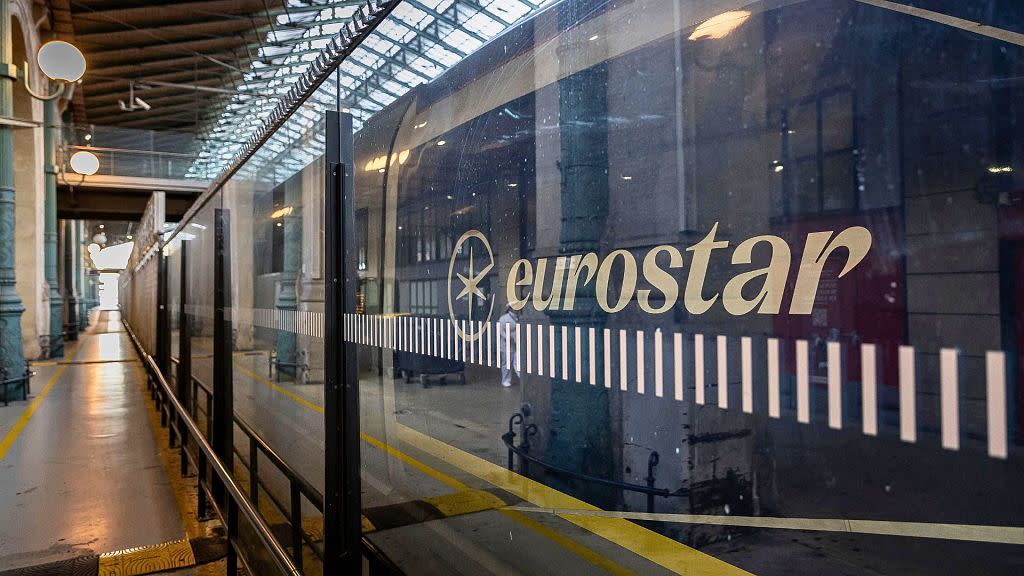‘Deliberately ambitious’: Eurostar promises to power its trains with 100% renewable energy by 2030

Eurostar has promised to power its trains with 100 per cent renewable energy by 2030.
The plan was laid out in the company’s first sustainability report, released on Tuesday.
It details plans to reduce energy use, source renewable power, minimise waste and promote train travel as a greener alternative to flying.
How will Eurostar run on 100% renewables?
Eurostar CEO Gwendoline Cazenave says the goal to switch to renewables by the end of the decade is “a deliberately ambitious target” aimed at “[accelerating] change across the sector”.
It is seeking regulatory support for the rapid deployment of new renewable energy projects, and collaboration from partners in the countries in which it operates.
For example, it has begun negotiations with Belgian government-owned railway company Infrabel to study the installation of solar projects to power trains.
Eurostar also recently joined the RE100 alliance - a global corporate renewable energy initiative that brings together big businesses committed to greening their operations.
“We're proud to be the first rail company to join," says Cazenave. "Today, the transport sector accounts for 25 per cent of European greenhouse gas emissions, making sustainable high-speed rail a key solution to a quarter of Europe’s climate problem.”
Through the initiative, Eurostar will be able to draw on a network of over 400 companies working towards the same goal.
Two countries in Europe are powered by 100% renewable energy as wind capacity soars
Cycling is now more popular than driving in the centre of Paris, study finds
Is Eurostar on track to run on 100% renewables?
Eurostar’s high-speed rail network links France, Belgium, the Netherlands, Germany and the UK, carrying millions of passengers across Europe each year.
In the Netherlands, its trains have already been running entirely on wind power since 2017.
In the UK, wind power has accounted for 40 per cent of Eurostar’s energy supply since 2023. Plans to introduce solar assets by 2025 will bring this total up to 80 per cent.
Currently, taking the train between London and Paris instead of a plane can lower a passenger’s emissions by 96 per cent, from 66 kg of CO2 to 2.4 kg.
How else is Eurostar going green?
Eurostar also aims to reduce its environmental impact by integrating circularity into its products to minimise waste and use resources more efficiently.
This includes continuing to source sustainable ingredients for onboard dining and offering environmentally friendly vegan and vegetarian options. Eurostar has also swapped out plastic food and drink packaging for recyclable and compostable alternatives.
On its London services, any unsold food is donated to waste-reduction company Olio, which redistributes it to local communities around the city, and any food waste is turned into organic fertiliser or compost.
The train operator also aims to improve connectivity with local rail networks and airports to encourage sustainable travel and transfers. Its partnership with Dutch airline KLM allows passengers to book air/rail tickets that include high-speed train connections to or from the airport.
The company aims to carry 30 million passengers annually by 2030, compared with 18.6 million in 2023.

